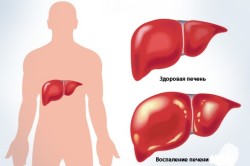Blood test for natural antibodies during pregnancy. Interpretation of a blood test for antibodies
The human body, thanks to its complex structure and functioning, is able to withstand dangerous diseases. The process occurs due to the production of specific proteins - antibodies. Indications for a blood test for antibodies can include both pathological disorders and determination of Rh conflict during pregnancy.
The human body is subject to constant attacks from various infections and viruses. The immune system, which performs protective function To prevent infection, produces antibodies. A blood test for antibodies allows you to assess the state of the immune system and determine the source of pathologies in the body. Antibodies (immunoglobulins) are specific proteins that can neutralize infectious antigens. Blood cells - lymphocytes - are responsible for their production in the human body.
Based on the results of a blood test for antibodies, the doctor assesses which immunoglobulins negatively affect the body and which can counteract the infection. It happens that antibodies remain in the body forever. This analysis makes it possible to determine earlier past illnesses. In addition, this test can determine the presence of autoantibodies.
Preparation for analysis and interpretation of results
If your doctor has prescribed a blood test for antibodies, then before taking it you need to do some simple preparation. To ensure that the indicator values are not distorted, it is necessary to follow a diet for several days, which consists of giving up fatty, spicy, and fried foods. An important condition is the exclusion of alcoholic beverages. If possible, you should stop taking medications. You need to donate blood in morning hours strictly on an empty stomach. The day before the test, you must avoid physical and emotional stress.

Like any other indicator determined in the blood, antibodies have norms for each specific group. The norms for immunoglobulin levels are as follows:
The norms of immunoglobulin levels make it possible to independently determine whether there are deviations or not. Only a qualified doctor can make a diagnosis. Thanks to special knowledge, studying the patient’s complaints, assessing all examinations and tests performed together, it is possible to make an accurate diagnosis and, accordingly, prescribe treatment. It should also be taken into account that the indicators may be distorted if the patient was not prepared for the study. This occurs if blood is not donated on an empty stomach or during treatment with certain drugs.
Determination of antibodies during pregnancy
For every person, in addition to knowing their blood type, determining the Rh factor is also important, especially for people planning a pregnancy. Rh antibodies are special kind proteins located on the surface of erythrocytes (red blood cells). A blood test for antibodies to the Rh factor must be performed during pregnancy to monitor the production of antibodies.

The importance of the study is that if a woman negative Rh factor, and the fetus is positive, then the child’s blood cells are perceived by the mother’s body as foreign bodies and the process of countering them is activated. If the values of the indicator during pregnancy cause concern among doctors, then appropriate treatment is prescribed. You need to donate blood first once a month, and then once every two weeks. To establish the blood type and Rh factor of the father and mother, you need to donate blood to the laboratory. The analysis is carried out using the in vitro method (translated from Latin as “in glass”), i.e. The material is taken from a vein and placed in a test tube for further study.
One way to determine blood type is to use monoclonal antibodies. Blood for research must be donated on an empty stomach.
If a woman goes to see a doctor and registers for pregnancy, she will need to take a test. a large number of blood tests. For example, for antibodies to herpes, chlamydia, rubella, Treponema pallidum (syphilis) and others that can penetrate through the mother’s cells to the fetus. They are also studied using the in vitro method. Donate blood on an empty stomach in the morning. If, when deciphering the study results, deviations in the values are detected, then doctors will prescribe urgent treatment. If antibodies to rubella or Treponema pallidum are detected, it is recommended to have an abortion, since the risk of developing serious pathologies
the child is very high. Determination of antibodies in blood has in diagnosing diseases and timely stopping their progression. During pregnancy, determining antibodies allows you to avoid serious pathologies for the fetus. Successful treatment cancer, autoimmune diseases, allergic reactions largely depend on information about the amount of antibodies in the blood. But it must be taken into account that deciphering the results may give distorted information if preparation has not been carried out, including blood donation not on an empty stomach.
An antibody test allows you to determine the presence in the body of pathogens of diseases such as:
- chlamydia;
- ureaplasmosis;
- cytomegalovirus infection;
- herpes;
- AIDS.
The study of the patient’s immune status is carried out comprehensively and helps to get rid of a potential threat to health.
Pathological antibodies present in the blood indicate autoimmune processes and cause infertility and fetal death due to Rh conflict in mother and child.
An analysis for antibody markers of an autoimmune disease is carried out in a specialized laboratory. Thanks to the study of blood serum, indicators such as:
- antibodies to thyroid peroxidase;
- antibodies for lupus erythematosus;
- specific proteins in relation to insulin.
By studying proteins in the patient’s body, the doctor makes a conclusion about the state of immunity.
Indications for antibody testing
 Prevent further development Frequent infections can be diagnosed using a blood test for immunoglobulins and antibodies. The key to successful treatment of oncological, allergic, autoimmune processes in the patient’s body is successful implementation research.
Prevent further development Frequent infections can be diagnosed using a blood test for immunoglobulins and antibodies. The key to successful treatment of oncological, allergic, autoimmune processes in the patient’s body is successful implementation research.
Studying specific proteins is necessary before carrying out complex surgical interventions, as well as organ transplant operations.
Rehabilitation programs after heavy loads, injuries, and illnesses are closely related to blood testing for antibodies. Infertility in men and Rh conflict between mother and child cannot occur without the presence of antibodies in the patient’s blood. There are five classes of antibodies: IgM, IgG, IgA, IgE, IgD.
Often, the patient is prescribed an antiphospholipid syndrome test to determine specific proteins for cardiolipin IgG, glycoprotein 1 IgM, annexin IgG and IgM.
Serological tests during pregnancy are mandatory for every woman. They prevent the development of complications in mother and child during pregnancy and childbirth.
Determination of antibodies to thyroid peroxidase makes it possible to successfully treat autoimmune thyroiditis. The analysis determines the presence of autoantibodies formed against antigens of the human body.
Preparing to donate blood
 To obtain a high-quality and informative result, the patient must prepare to donate blood in the laboratory. Biomaterial must be donated 8 hours after the last meal.
To obtain a high-quality and informative result, the patient must prepare to donate blood in the laboratory. Biomaterial must be donated 8 hours after the last meal.
Before starting the study, you are not allowed to drink coffee, juice or tea. To make a correct diagnosis and obtain objective results you need to quit smoking.
A blood test for antibodies to infectious pathogens reveals immune failure in the body.
To test for antibodies to the Rh factor, it is recommended to take blood 4 hours after eating food. The doctor’s referral or the material collection forms attached to it record the normal parameters for each antibody level indicator. It is necessary to take care of your peace of mind before the study and stop drinking alcohol.
PSA antigen determination is carried out a week after any manipulation of the prostate (biopsy, massage). The analysis method involves canceling medicines taken by the patient 2 weeks before the study biological material. The referral form for analysis indicates the dosage and name of the medications taken.
Laboratory diagnosis of antibodies in pregnant women
 According to doctors, preparing for the birth of a child creates a significant burden on the mother’s immunity, and aggravated infections can lead to the death of the fetus. Blood testing during pregnancy has become the norm for many women. Detection of an infectious agent during pregnancy sometimes serves as a reason for abortion.
According to doctors, preparing for the birth of a child creates a significant burden on the mother’s immunity, and aggravated infections can lead to the death of the fetus. Blood testing during pregnancy has become the norm for many women. Detection of an infectious agent during pregnancy sometimes serves as a reason for abortion.
The presence of antibodies in a woman’s blood before conception is not dangerous for the unborn child.
Rubella is the most dangerous infection that causes congenital deformities in the fetus. If the expectant mother has a weakened immune system and low antibody levels, vaccination is recommended before pregnancy.
Rh conflict between the child and mother contributes to the appearance of dangerous antibodies in the blood. They significantly destroy red blood cells, causing oxygen deficiency in the fetus and the development of geomolytic anemia. The disease can occur in various forms, but if the mother’s health deteriorates and there is danger to the fetus, treatment is adjusted in order to preserve the child’s life.
Interpretation of blood test results
 After examining the patient and taking blood to determine antibodies, the doctor provides the patient with a transcript of the test results. The normal value of immunoglobulin IgA antibodies is 0.15-2.5 g/l. An increase in indicators occurs with rheumatoid arthritis, hepatitis, and cystic fibrosis. Low antibody levels are observed as a result of the development of such ailments as:
After examining the patient and taking blood to determine antibodies, the doctor provides the patient with a transcript of the test results. The normal value of immunoglobulin IgA antibodies is 0.15-2.5 g/l. An increase in indicators occurs with rheumatoid arthritis, hepatitis, and cystic fibrosis. Low antibody levels are observed as a result of the development of such ailments as:
- dermatitis;
- anemia;
- cytostatic disorders.
IgM antibodies are a reliable barrier to infections, destroying viruses and bacteria in the blood serum. Normal indicator IgM in women is 0.7-2.8 g/l, in men it is slightly lower and amounts to 0.6-2.5 g/l.
Infection of a child with a virus in the first weeks after birth, as well as many diseases respiratory system accompanied by an increase in the number of antibodies.
Lymphoma, burns, diseases of the stomach and intestines are characterized by low levels of antibodies. The normal IgG value is 7.3-13.5 g/l in young children, and 8.0-18.0 g/l in adults. In the first half of pregnancy, Rh antibodies are studied monthly, and in the second trimester, testing is carried out every 14 days.
Analysis for autoimmune antibodies and TORCH infection
 Deciphering antigens during agglutination in a gel is needed to determine specific IgG proteins for autoimmune diseases. Antibodies to unicellular fungi have the IgA and IgG classes. When a patient develops vasculitis, specific proteins appear that provide bactericidal protection to the patient’s body. As a result of the development of autoimmune processes in the liver, inflammation is formed, accompanied by the appearance of antimitochondrial antibodies in the patient’s serum.
Deciphering antigens during agglutination in a gel is needed to determine specific IgG proteins for autoimmune diseases. Antibodies to unicellular fungi have the IgA and IgG classes. When a patient develops vasculitis, specific proteins appear that provide bactericidal protection to the patient’s body. As a result of the development of autoimmune processes in the liver, inflammation is formed, accompanied by the appearance of antimitochondrial antibodies in the patient’s serum.
The reaction to sperm-forming cells in men leads to the appearance of antisperm antibodies.
Testing for antibodies to toxoplasmosis is carried out by a doctor. The presence of the disease is indicated by the appearance of IgG and IgM in the study results, if previously these parameters were completely absent, or an increase in IgG over 3 weeks by more than 4 times. The presence of IgG indicates illness and does not pose a danger if the fetus becomes infected.
In development cytomegalovirus infection IgG antibodies indicate immunity to the pathogen. During an exacerbation of the disease, IgM appears, and the risk of infection of the fetus increases several times. The absence of IgG indicates the disappearance of immunity.
Presence of a specific protein for thyroid peroxidase
A change in the amount of antithyroid antibodies in the blood indicates the possibility of hypothyroidism and hyperthyroidism in patients. When Hashimoto's disease occurs, the level of a specific protein called TPO increases. Normally, the antibody titer does not exceed 35 IU/ml. Increased changes in digital indicators of standard values indicate an increase in the level of antibodies to peroxidase.
Some healthy patients values above 35 IU/ml are not accompanied by pathology thyroid gland. Low level antibodies occur in a small proportion healthy people and persons suffering from concomitant pathologies. The parameters are determined by immunoluminescent analysis using venous blood as a material.
Analysis for the presence of antibodies allows you to establish or exclude autoimmune cause illness and prescribe effective therapy.
Throughout life, the body of any person is regularly exposed to viral and infectious attacks. To protect it and prevent development various diseases, the immune system produces antibodies. If the immune system is weakened, then the infections entering the human body “take over” and the person becomes ill.
Antibodies help identify the cause of negative changes in the human body, in particular, determine the state of his immune system. Antibodies are specific proteins designed to bind infectious antigens. Antibodies are produced by lymphocytes. During the study, the presence of antibodies to infectious pathogens is determined. The results of this test indicate past or current infections.
When it is not possible to establish the presence of dangerous pathogens in any other way, it is blood testing for antibodies that helps identify viruses and bacteria that are the source of damage to the human body. Antibodies are divided into five classes - IgA, IgG, IgD, IgE, IgM. It is noted that strictly defined antibodies act on each class of antigens. Based on the results of the analysis, the doctor can determine which antigens have an adverse effect on the human body and which antibodies can eliminate the causative agents of the disease and speed up recovery. In some cases, antibodies to certain infectious pathogens remain in the human body forever. Given laboratory test allows you to accurately determine the diseases that a person has had before.
As a rule, an antibody test is prescribed to detect infections such as viral hepatitis, chlamydia, herpes virus, leptospirosis, ureaplasmosis, cytomegalovirus, tetanus (clostridial infection), diphtheria, HIV infection, syphilis and some other sexually transmitted diseases.
This study determines another important indicator – the presence of autoantibodies. They are formed in response to antigens of the body itself - hormones, DNA fragments, phospholipids, receptors. Based on the presence of autoantibodies, a diagnosis of autoimmune disease can be made. For example, the detection of antibodies to double-stranded DNA during the examination indicates a systemic connective tissue disease - lupus erythematosus.
Without a blood test for antibodies, it is quite difficult to detect an autoimmune disease. For example, almost 70% of people suffering from rheumatoid arthritis have rheumatoid factor. In some cases chronic disease liver or with a disease such as Sjogren's syndrome, rheumatoid factor is also detected in the blood. Sometimes it is determined even in healthy people.
People suffering from pernicious anemia have antibodies to internal factor. This is the name of a special protein formed in the human stomach and intended for the absorption of vitamin B12. In turn, antibodies to the Epstein-Barr virus are detected in patients with infectious mononucleosis. The presence of antiovarian and antisperm antibodies indicates infertility. With a disease such as autoimmune inflammation of the thyroid gland, antibodies to thyroglobulin are present in the blood. And the development is indicated by antibodies to insulin present in the human blood.
Depending on diet and lifestyle, the composition of any person’s blood is constantly updated. Therefore, before testing your blood for antibodies, you should follow a certain regimen. Donate blood from a vein in the morning, always on an empty stomach. To obtain reliable data several days before the analysis, it is necessary to exclude fatty, smoked, spicy, and salty foods from the daily diet. You should avoid drinking alcoholic beverages, fruit juices, and alcohol-containing medications.
A blood test for antibodies is performed for many indications. The doctor may prescribe such a study if the patient has frequent infectious diseases, suspected sexually transmitted infections, helminthic infestations, thyroid disease. Antibodies in the blood of a pregnant woman may indicate the presence of Rh conflict. So what is this test and when is it necessary to take a blood test for antibodies?
Antibody test
The human body is constantly under attack various infections. To protect the body and prevent disease, the human immune system produces antibodies. An antibody test makes it possible to determine the state of a person’s immune system, the cause pathological changes in organism.
Antibodies are special specific proteins (immunoglobulins) that are capable of binding infectious antigens. They are produced by blood lymphocytes. During the study, the presence of antibodies to certain pathogens is determined. The results of the antibody test indicate the presence of current infections and previous diseases.
There are five classes of antibodies - IgA, IgG, IgD, IgE, IgM. Each class of antibodies acts on strictly defined antigens.
IgM antibodies are called “alarm immunoglobulins.” Their number increases sharply at the very beginning of the disease. These antibodies quickly react to the introduction of infection into the body and provide primary protection against it.
IgA antibodies are responsible for local immunity of mucous tissues. These immunoglobulins are activated during skin infections and acute respiratory infections. In addition, the level of IgA antibodies increases with intoxication, chronic liver pathologies, and alcoholism.
Based on the result of a blood test for antibodies, a specialist can determine which antigens negatively affect the patient’s body and which immunoglobulins can eliminate the infection. Sometimes antibodies to certain pathogens remain in the human body forever. This study makes it possible to accurately determine those diseases that a person has had before.
An antibody test is usually prescribed to detect viral hepatitis, herpes virus, chlamydia, ureaplasmosis, leptospirosis, cytomegalovirus, tetanus, HIV infection, diphtheria, syphilis and some other diseases.
With the help of this study, it is possible to identify another extremely important indicator– presence of autoantibodies in the blood. These antibodies are formed to antigens of the human body itself - receptors, phospholipids, DNA fragments, hormones. Determining the presence of autoantibodies makes it possible to diagnose autoimmune diseases. Without this antibody test, it is quite difficult to identify autoimmune pathologies.
You can take a blood test for antibodies in diagnostic, medical centers, and laboratories at specialized departments of hospitals. To do this, you must have a referral from a doctor, which will indicate which immunoglobulins need to be determined.
The day before the analysis, it is necessary to exclude spicy, fried, salty, fatty foods from the diet, alcoholic drinks and avoid smoking and taking medications. This test does not need to be taken after physiotherapeutic procedures, tomography, ultrasound, or fluorography. Blood from a vein is donated for testing in the morning on an empty stomach.
 The interpretation of the blood test for antibodies should be carried out by a doctor who takes into account everything additional factors to make a diagnosis. But everyone can check their indicators themselves to determine how well they correspond to the norm.
The interpretation of the blood test for antibodies should be carried out by a doctor who takes into account everything additional factors to make a diagnosis. But everyone can check their indicators themselves to determine how well they correspond to the norm.
1. Immunoglobulins of the IgA class. These antibodies are found on the surface of mucous tissues, in urine, bile, saliva, milk, colostrum, as well as in lacrimal, gastrointestinal, and bronchial secretions. The main function of these antibodies is to neutralize viruses. They protect the respiratory and genitourinary tract, gastrointestinal tract from infection.
Normally, the level of IgA immunoglobulins in the blood of children under 12 years of age is 0.15–2.5 g/l, in older children and adults – 0.4–3.5 g/l.
An increase in this indicator occurs with alcoholism, cystic fibrosis, tuberculosis, rheumatoid arthritis, liver cirrhosis, chronic hepatitis, chronic purulent infections of the digestive system.
A decrease in IgA immunoglobulins can be observed with pernicious anemia, atopic dermatitis, radiation exposure, and taking certain medications (cytostatics, immunosuppressants).
2. IgM immunoglobulins. These immunoglobulins are the first to react when an infection enters the body and trigger immune defense. They are produced in plasma cells and neutralize bacteria and viruses in the blood serum.
According to the transcript of the blood test for antibodies, the normal value of IgM immunoglobulins in the blood of children under 10 years of age is 0.8–1.5 g/l, in men – 0.6–2.5 g/l, in women – 0.7– 2.8 g/l.
3. IgG immunoglobulins. These antibodies are activated when allergic reactions occur and bacterial infection in organism.
Normal IgG levels for children under 10 years of age are 7.3–13.5 g/l, for older children and adults – 8.0–18.0 g/l.
Level IgG antibodies increases with sarcoidosis, systemic lupus erythematosus, rheumatoid arthritis, tuberculosis, HIV infection. Reduced level These antibodies occur with neoplasms of the lymphatic system, allergic reactions, and hereditary muscular dystrophy.
Blood test for Rh antibodies
Rh antibodies (Rh factor) are a special protein that is found on the surface of red blood cells. Those people who have this protein are called Rh positive. But 15% of people who are called Rh negative do not have this protein. Rh negative does not cause harm to human health. The situation becomes dangerous when a Rh-negative pregnant woman has a baby. Rh positive blood. In this case, there is a possibility of antibodies from the Rh-negative mother entering the child’s bloodstream. As a result, the baby may develop quite severe pathologies of the liver, brain, and kidneys.
To control such situations, all Rh-negative pregnant women undergo a blood test for Rh antibodies. Already at the first visit to the doctor, a woman is recommended to take a blood test for antibodies. After this, in the first half of pregnancy future mom takes a blood test for Rh antibodies every month. In the second half of pregnancy, this study is carried out twice a month. If necessary, the fetus and newborn are given special therapy.
There are quite a lot of methods for studying human blood to diagnose and identify any diseases. can be prescribed both according to indications and mandatory. The medical name for antibodies is immunoglobulins. Let's try to figure out what they are, why they are needed and how they work. Immunoglobulin is a serum that is produced by protective cells - lymphocytes in response to the invasion of a foreign microorganism into the body. From the moment of birth, a person is constantly faced with a foreign environment, and his immune system must be on alert. Antibodies are the “soldiers” of immunity.
How are they produced?
When an antigen first enters the body, special cells of the immune system recognize it, “decode” it, after which the process of producing counteracting cells starts. On such preparation period it takes several days, and after 7-10 days the amount of antibodies in the blood reaches its maximum.
The lifespan of antibodies in human blood varies. For example, after suffering from the flu, the presence of immunoglobulins is observed for a year to a year and a half, after an acute respiratory viral infection - for several months, after chickenpox - for life. The presence of antibodies in a person’s body does not mean protection from re-infection, it is protection from recurrent disease.
They are able to remember aggressive agents and upon their subsequent penetration, the production of antibodies occurs much faster, and the disease does not have time to develop.
Antibodies not only fight microorganisms (viruses, bacteria and others), but are also produced when exposed to allergens, and neutralize dead cells of one’s own tissues.
Classification
Detection of an increased concentration of immunoglobulins of one or another group in the blood can tell a lot about the processes occurring in the body, even if they do not yet show symptoms.
- For infectious diseases it is important:
- attack, what infectious microorganism the person was exposed to;
- whether the immune system is coping successfully or whether it requires help in the form of drug therapy;
- at what stage is the disease, and is there a risk of it becoming chronic;
- primary or re-infection has occurred.
- When planning a pregnancy, the necessary indicator is antibodies to the Rh protein, which determines the gestation and development of the fetus, as well as methods of pregnancy management.
- finds out which antigen the body reacts to increased sensitivity Based on this, treatment is developed.
- If you suspect cancer this analysis testing for antibodies confirms or refutes these suspicions by the presence or absence of antibodies to malignant cells.

How is the analysis performed?
Can be done on any hand. To ensure the reliability of the research result, it is better to carry out preparation within two to three days:
- stop taking medicines, if these are life-sustaining drugs, they must be reported to the treating doctor;
- exclude physical exercise and the impact of physiotherapy;
- introduced dietary food(exclusion of spicy, fried foods, alcohol, tonic drinks);
- in the morning;
- refrain from nicotine for two hours before the test;
- Blood testing for antibodies is not given immediately after an infectious disease or a violent allergic reaction.
Decoding
Antibodies are tested for the three main immunoglobulins responsible for the formation and maintenance of immunity - IgA, IgM, IgG. Each of them has its own norm indicators for different age groups. IgA, normal for children – 0.15 – 2.5; for adults – 0.4 – 3.5.
Promotion and relegation
An increase in antibodies in the adult body is observed when:
- acute respiratory infections;
- inflammation of the mucous membranes of the gastrointestinal tract and urinary tract;
- liver diseases;
- skin infections;
- malignant lesions of the lymphatic system and the blood itself.
Antibody decline occurs:
- chronic inflammatory processes;
- immunodeficiency states;
- renal failure;
- taking immunosuppressants.
IgM, the norm in children is 0.7 – 1.5; for women – 0.7 – 2.9; for men – 0.5 – 2.5.
The decrease is observed:
- condition after radiation therapy;
- condition after removal of the spleen;
- extensive burns.
IgG, norm for children – 7.0 – 13.0; for adults – 7.0 – 16.0.
The decrease is detected:
- allergic manifestations;
- conditions after removal of the spleen;
- pathological conditions of the kidneys;
- radiation exposure;
- taking immunosuppressants.
A blood test for IgE is prescribed for suspected allergic reactions and for antigen detection.
Vaccination
One way to train the immune system is vaccination. The essence of this method is to introduce into the body severely weakened or dead cells"enemy agent" In response to this, IgM antibodies are produced, which destroy these cells, and IgG, which remember the enemy himself and how to fight him. Repeated administration (re-vaccination) forms final lifelong immunity. As a result, the immune system is prepared to meet a real virus and responds quickly and efficiently.
Thanks to vaccination, the number of outbreaks of childhood infectious diseases (measles, polio, rubella) has significantly decreased, and such dangerous infections Like smallpox, the plague was completely suppressed.
The debate about the need for mass immunization has been going on for many years. Both supporters and opponents of vaccination make strong arguments.
A striking example of the use of antibodies in diagnostics is the Mantoux test. To do this, a dose of tuberculin is injected intradermally into the person - these are not living microorganisms, but only a product of their vital activity, so it is not possible to become infected with tuberculosis when they are administered.
Antibodies of class M and class G react to tuberculin. Moreover, if there is immunity, that is, if a person is infected or has had this disease, the reaction will be more violent than usual. Therefore, it is assessed in dynamics, in comparison with previous results. The diagnostic accuracy ranges from 70 to 80%.
A positive result for antibodies does not necessarily indicate the development of the disease; it may be a hyperreaction to tuberculin, as to an allergen, or may indicate a well-developed immune system. When found positive result An additional examination is prescribed: radiography chest, and Pirquet's test.

During pregnancy
The most important thing is to identify antibodies to, it is equally important to know whether a pregnant woman has immunity to rubella or not.
Organism Rh negative woman is able to reject a fetus that has Rh protein, perceiving it as a foreign microorganism. develops during the second and subsequent pregnancies, when female body already sensitized. Detection of positive antibodies to Rh protein in a woman’s blood allows for timely necessary measures to maintain pregnancy and prevent fetal death.
Why is a rubella antibody test performed? This is childish infection It is dangerous not so much for the pregnant woman herself as for the unborn child. If neither IgM nor IgG are found in the blood, it means that the woman has no immunity, and in case of illness, the fetus will be affected by the virus in 70–90% of cases. If the mother has immunity, the disease does not pose a threat to the baby, even if the mother becomes infected.
If there are several cases in the anamnesis spontaneous abortions, the woman is prescribed a test for antibodies to phospholipids. This pathology is caused by genetic predisposition and autoimmune diseases.
Antibody determination
When hospitalized in a hospital, testing for antibodies to blood-borne diseases is mandatory. This is important to prevent nosocomial infection, both for other patients and medical personnel. These diseases include: viral and B, HIV infection. Immunoglobulins to them begin to be produced in the latent (hidden) stage, when external manifestations not detected.
Indications for blood tests
It makes it possible to determine not only the presence or absence of this disease, but also the stage of development. Determination of antibodies to cytomegalovirus is important when planning pregnancy.
Allergy tests are the detection of immunoglobulins produced as a hypersensitive reaction to contact with an antigen. Moreover, there is an increase in IgE, which normally is practically not found in childhood, but increases significantly in number over the years.
Blood testing for antibodies is used for diagnosis and monitoring of diseases of the thyroid gland, stomach and intestines, joint diseases, autoimmune diseases. This method is widely used in the diagnosis of TORCH infections.



